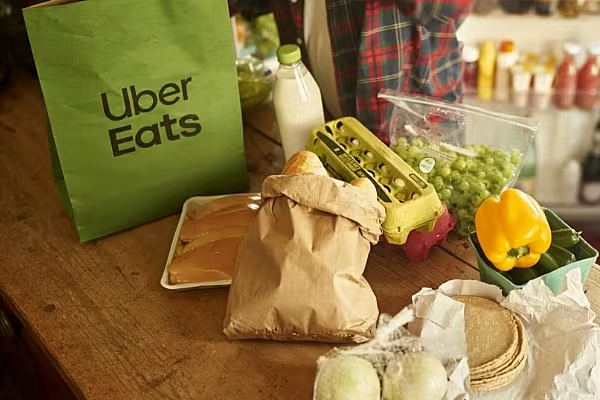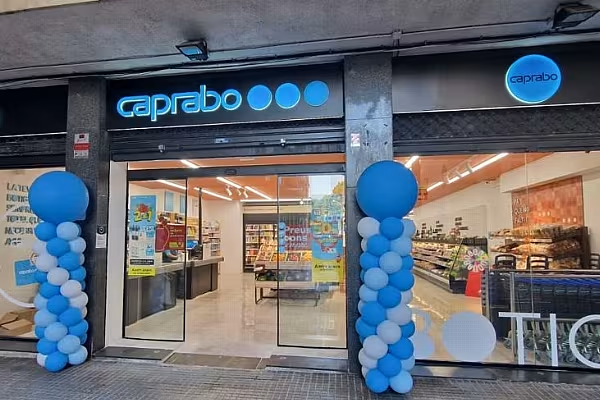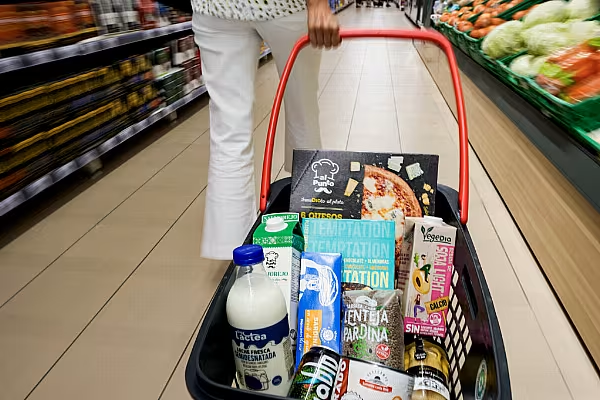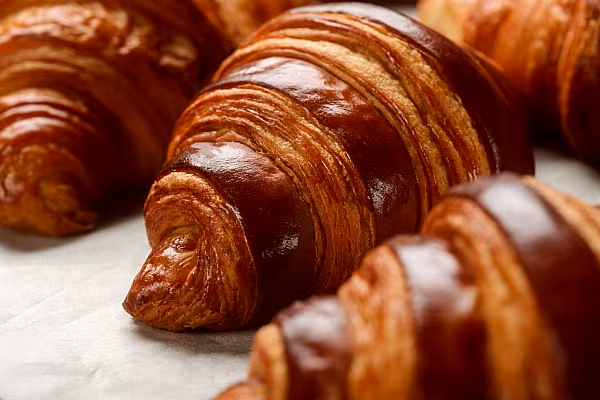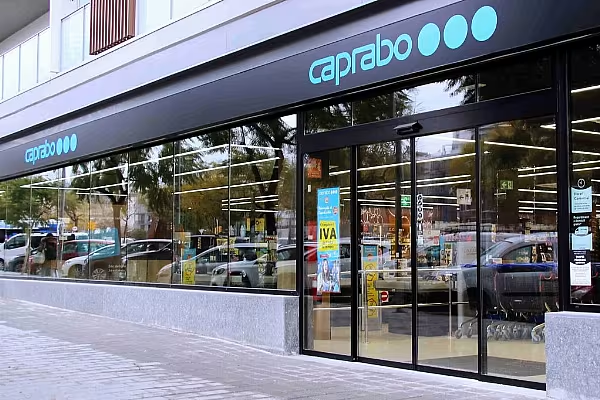Earlier this month, Uber Technologies reported that its delivery business, spearheaded by the Uber Eats platform, reported a 29% increase in revenue (at constant currency) in the first quarter of its financial year, to $3.09 billion (€2.84 billion).
While Uber Eats’ rise to prominence was initially driven by the HoReCa channel, as it has evolved, Uber Eats has become a valuable ally for a wide array of retail businesses – in the first few months of this year, for example, it signed partnerships with PetSmart in the US, Australian grocer Coles, Mexican pharmacy chain Benavides, and the Liquor Control Board of Ontario in Canada.
In Europe, too, the group can count on some sizeable partners – in April it announced it was expanding its partnership with French retailer Carrefour, while other partners include Portugal's Continente, Groupe Casino and Tesco.
At the recent Shoptalk Europe event in Barcelona, Matthew Price, general manager, UK, Ireland & Northern Europe, Uber Eats, took part in an interesting discussion on the evolution of 'next generation convenience', exploring the rise of 'non-linear' shopping journeys and the importance of partnerships in understanding the needs of today's customer.
ESM's Stephen Wynne-Jones caught up with him on the sidelines of the event.
ESM: Hi Matt, thanks for talking to us. Uber Eats works with grocers all over Europe. Do you think many legacy operators understand how the customer is changing – particularly with regard to 'immediate fulfilment' – and to what extent have they adapted to these changes?
We pride ourselves on partnership, and we see ourselves as succeeding only when our merchants and partners succeed. I can tell you that the grocers we're working with are some of the biggest names across Europe, including Tesco, Sainsbury's, Asda, and Carrefour. They're engaged in working with us to address consumer pain points and achieve incremental growth in grocery delivery.
Our grocery business is built upon Uber's existing marketplace, using the same tech stack and network of couriers that deliver restaurant food. We're in tight partnership with our grocer partners, innovating all the time to sort out and handle the challenges around stock-outs, and making sure that for customers, you get what you want.
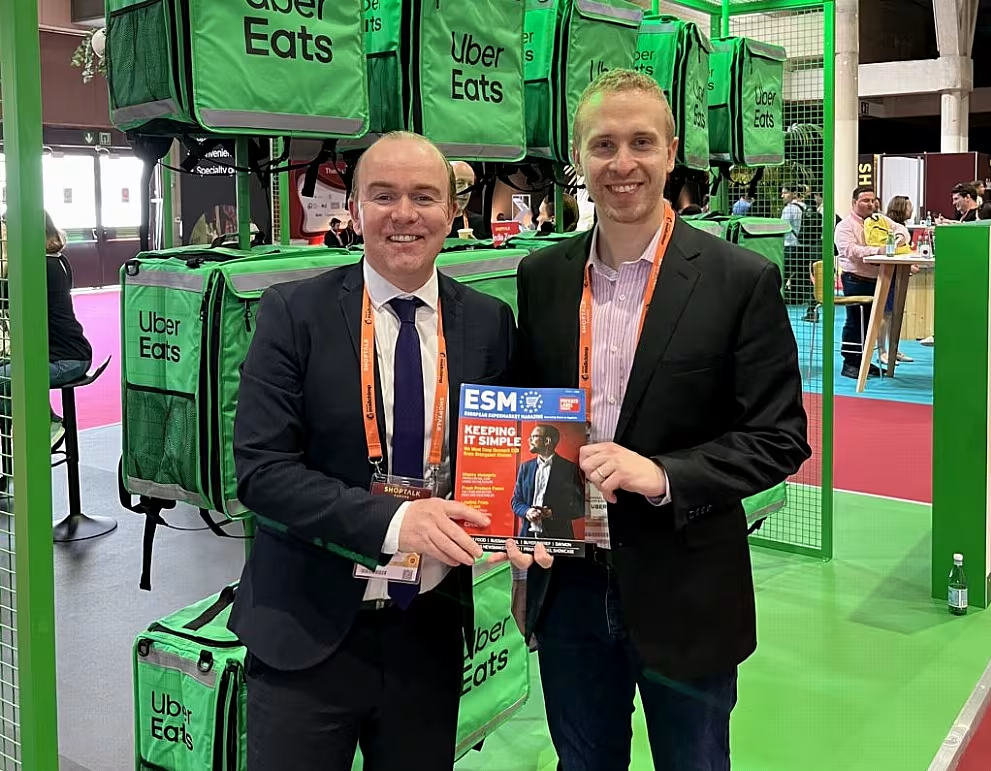
ESM editor Stephen Wynne-Jones and Matthew Price, General Manager, UK, Ireland & Northern Europe, Uber Eats
In the past, retailers that wanted to develop grocery delivery platforms might have developed them by themselves, now they are turning to specialist operators like Uber Eats. How does your conversation with retailers generally start?
Retailers and grocers are using multiple different channels to drive growth. Some of them have their own legacy delivery business, while others are putting their SKUs in our app.
Increasingly, more and more retailers are working with us directly, which allows them to offer same-day or even next-hour delivery to their consumers through their own app. So, if you use the Tesco app or website, you not only have the traditional fulfilment options, but also the option for same-day, next-hour, or scheduled delivery through Uber Eats.
Obviously, many consumers are facing a cost-of-living crisis at the moment, and retailers are seeking to cut costs where possible. Is that part of the dialogue you have with retailers – that they are looking for ways to streamline their operations and pass on savings to customers?
The retailers that are innovating to solve the many challenges in a very competitive space are the ones who partner with us and work on all the things you mentioned.
Ultimately, the goal is to solve what consumers want - quality, selection, speed, and reliability.
There has been much discussion in recent months about the role of quick commerce, dark stores and the viability of the rapid delivery sector. For Uber Eats, would be fair to say you are very much based on partnerships, rather than developing a 'standalone' offer?
We use different models in different parts of the world. We operate in 45 countries. However, in the markets that I am responsible for, partnership is the main approach.
With regard to quick commerce, we are partnering with a number of players. For instance, Gopuff sells its products through our app in the UK. In the US, we are delivering for the Gopuff app through Uber Eats.
What we're hearing from these quick commerce players is that we bring them the volume that would be very expensive for them to acquire otherwise.
We allow them to focus on what they do best, which is curating the right selection and managing the warehouse. We take care of the delivery with our best-in-class delivery network, getting it to the end consumer cheaply, reliably, and quickly.
Read More: Carrefour Strengthens Partnership With Uber Eats In France
© 2023 European Supermarket Magazine – your source for the latest Technology news. Article by Stephen Wynne-Jones. Click subscribe to sign up to ESM: European Supermarket Magazine.
